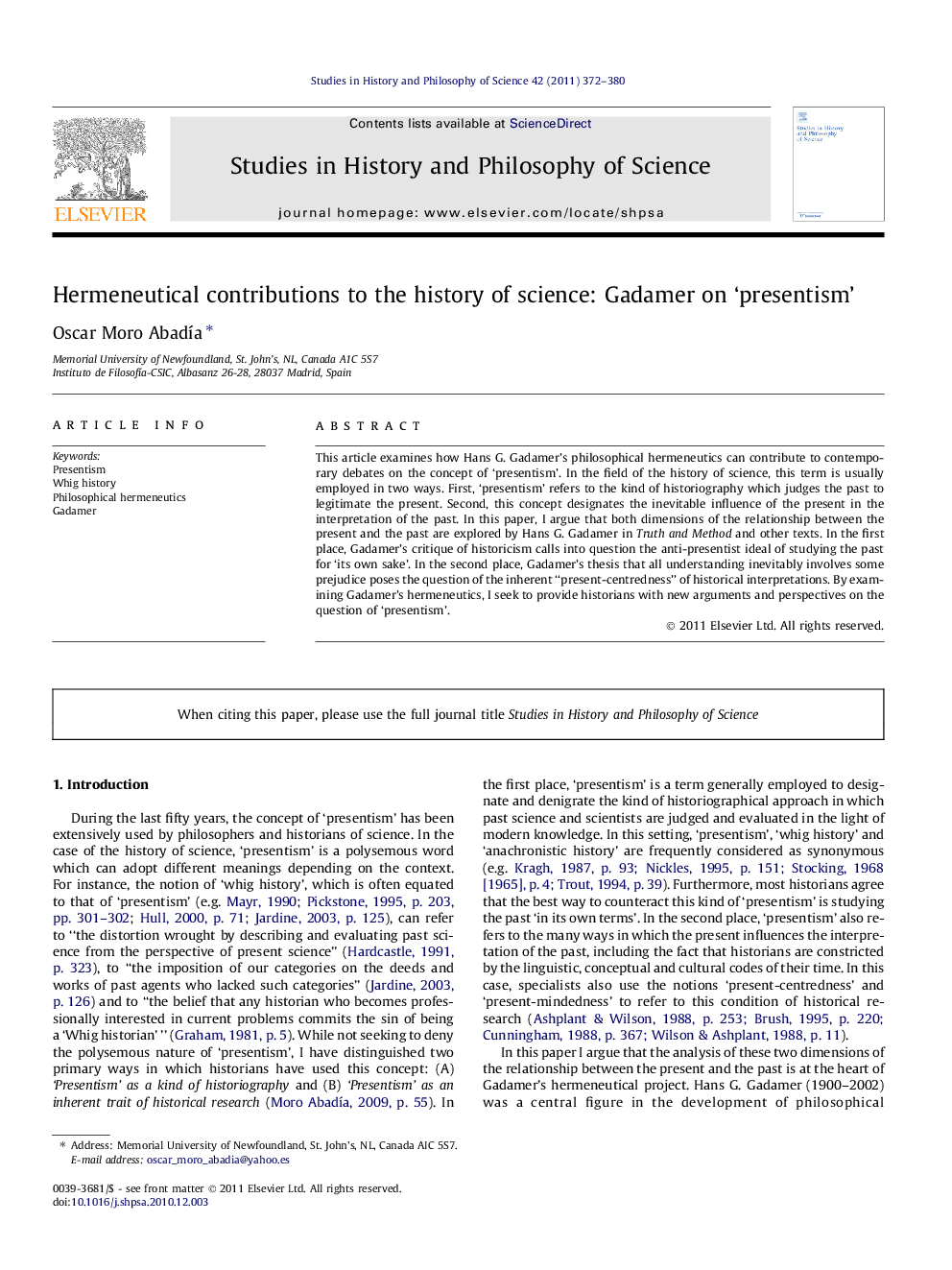| Article ID | Journal | Published Year | Pages | File Type |
|---|---|---|---|---|
| 1160956 | Studies in History and Philosophy of Science Part A | 2011 | 9 Pages |
This article examines how Hans G. Gadamer’s philosophical hermeneutics can contribute to contemporary debates on the concept of ‘presentism’. In the field of the history of science, this term is usually employed in two ways. First, ‘presentism’ refers to the kind of historiography which judges the past to legitimate the present. Second, this concept designates the inevitable influence of the present in the interpretation of the past. In this paper, I argue that both dimensions of the relationship between the present and the past are explored by Hans G. Gadamer in Truth and Method and other texts. In the first place, Gadamer’s critique of historicism calls into question the anti-presentist ideal of studying the past for ‘its own sake’. In the second place, Gadamer’s thesis that all understanding inevitably involves some prejudice poses the question of the inherent “present-centredness” of historical interpretations. By examining Gadamer’s hermeneutics, I seek to provide historians with new arguments and perspectives on the question of ‘presentism’.
